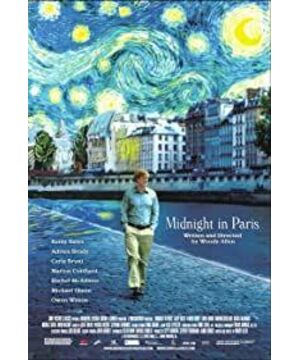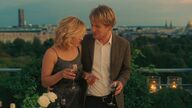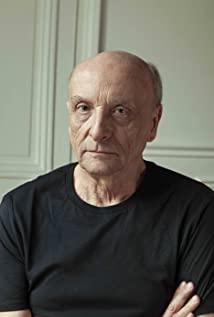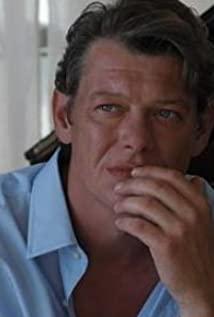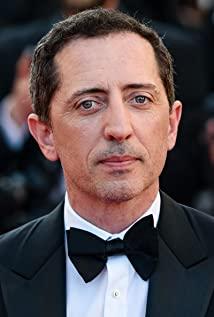"a love letter to Paris", the critics seem to have naturally put such a subtitle on Woody Allen's 2011 new film "Midnight Paris". In recent years, the New York independent filmmaker who rarely looks away from his hometown has moved his camera to Europe and shot a series of films set in London, Barcelona and Paris, such as "The End of the Game" (2005) , "Exclusive News" (2006), "Midnight Barcelona" (2008), etc.
In terms of influence, "Midnight Paris" is undoubtedly a leader: it broke the director's personal record at the box office, and was released in spring. At the end of the year, the always forgetful Oscar season is still frequently nominated for various awards. Although the director's shadow can be vaguely found in the Hollywood screenwriter who is a guest in Paris in the film, "love letter" is a very gentle word, which is not the same as the usual ridicule and banter used by Allen in his heyday. It was not the slightly neurotic, chattering New York street intellectual who helped "Midnight Paris" succeed—he used to take a self-portrait every year, but more like two popular elements in China: "crossing" and "small freshness".
Through the crossing and anti
saying "Midnight in Paris" is "through", rather than time travel, because the film is clearly Zhi Buzai science fiction, and "Back to the Future" similarity (1985) or "The Time Machine" (2002) is even small. It was not modern technology that brought the playwright Gael back to Paris in the 1920s, but a classic car from that era. The bell rang at midnight and the magic time began. Gale jumped into the car in an alley. Hemingway sat in the car and waited for him. He drove him to the jazz-age night scene with the Fitzgeralds, Picasso, Dali and Bunuel pushed the cup to change.
Even if Gale found himself in the memoirs passed down by Picasso's lover Adriana, even if Adriana decided to stay at the end of the 19th century, the film did not follow this clue to explore whether going back to the past would change history. If you want to "wear", you can "wear". There is no cost and no consequences. This daydream-like setting is quite similar to the popular traversing drama on domestic screens. Even if it is classified as a fantasy subject, it can only barely be considered a fantasy.
If the film has a theme, it is the confession that the protagonist and Adriana said before they parted ways with the latter at the end of the 19th century. In this golden age favored by Adriana, Gail discovered that the age favored by Gauguin and others was the Renaissance. He figured out that the masters of the Renaissance would also have an older golden age in their minds, and the 1920s he yearned for had "no antibiotics" and no anesthetics, which was not suitable for modern people to survive. Indulging in the old days is essentially avoiding unsatisfactory reality, and a person still belongs to his own time after all. After passing through, the question fell on the "anti-traversal".
Living in the present, this is not a new idea in the science fiction of time travel. Many years ago, I saw a novel with the same idea in the magazine "World of Science Fiction". An extreme plot was interspersed in the main story: a Japanese begged strangers to find a way to send him back before the atomic bomb. Hiroshima, even if it is hell on earth, your own time is still the best.
The "New York Times" film critics also admitted that "Midnight Paris" has nothing new, but then slyly argued: "What new things can you expect in such a film that shows nostalgia?" Indeed, the film does not hesitate to write. The colorful chapter is a group portrait of the Paris cultural circle in the 1920s that Allen borrowed from Hemingway's memoir "A Feast of Flowing." The encounter with the old time in the dream, decorated with the romantic atmosphere of Paris, is quite "small and fresh". It is a dreamland where three generations of literary and artistic old, middle-aged and young can travel without baggage. This is the selling point. The theme of the movie is anti-traversal, but the audience buys the account of transversal. This is the first paradox of "Midnight Paris".
Love Paris, is a tradition
in Hemingway's, Parisian charm, perhaps more so today. In Christopher Ashwood's autobiographical masterpiece "The Berlin Story", the British Norris traveled all over Europe and complained about various cities, but he was full of praise for Paris. The German political commentator Hafner said in his memoir "The Story of a German" that after the Nazis came to power, the city where he wanted to go into exile was none other than Paris.
Even if limited to the screen, there are too many love letters dedicated to Paris. Not to mention, in 2006, more than ten major directors made a series of short films, "Paris, I Love You", whose title is the collective confession of the filmmakers. Allen said this: "I love Paris. This city is full of street cafes and exquisite restaurants. Music and wine are everywhere. So beautiful, so romantic, so charming. This is a city that never sleeps. Everyone will fall in love with her." Allen’s Paris story happened at midnight. According to him, he was inspired by a Paris romantic melodrama written by Billy Wilder in 1939. The name of this movie is "Midnight". Allen said that he first thought of the story taking place at midnight from this old movie, and then thought of a "romantic encounter."
Wilder was not a major director at the time, but one of Liu Bieqian's screenwriters. The two were also Jewish directors who spoke German and moved to the United States before and after the Nazis came to power. One of Wilder's lifelong legacy inherited from the latter is love for Paris, although he only stayed in Paris for a short period of time before going to the United States. This confirms from the side the title of Hemingway's "Mobile Feast": "If you were fortunate enough to live in Paris when you were young, she will be with you no matter where you go in your life from now on. Because Paris is a place of mobility. . feast "
Paris postcard on
a problem with a movie to tell the love for a city, have to be careful of is: What exactly is the object of love? It will never be a silent city building.
Before being added, Hafner's memoir ended with a boat rafting with a girl who had returned to Paris temporarily. He loves this girl, and under the high-pressure rule of the Nazis, he especially loves the freedom and freedom of Paris, which is in the heart of the girl. At the end of "Midnight Paris", Gale is determined to face his heart, separate from his materialistic fiancée, put aside his American life, and stay in modern Paris. The film ends with him walking in the rain with a French woman looking at a nostalgic shop. If a person has true love for a city, he can only love the aura of the city and the feeling and resonance of people.
The problem is that Gale, who was lost in Hollywood, first looked for himself in Paris in the 1920s, but finally recognized contemporary Paris. The artistic Paris and the copper-smelly Hollywood can be regarded as a sharp contrast, but compared with the past, what is more and less in Paris? Is it just that there is no master and more antibiotics?
At the beginning of "Midnight Paris", the soothing empty camera is aimed at the street scenes of Paris. I take it leisurely. From early morning to dusk, there is quite the charm of the silent documentary classic "Urban Symphony". However, unlike the city’s breath of "Urban Symphony", in Allen's 4-minute "slide show", Paris is as neat and clean as a postcard, and there is no post-modern hideous that destroys the elegant skyline of Paris. Building into the mirror. As clean and transparent as "Angels Love Beauty", Paris, which has undergone multiple filtering, has no postmodern vulgar invasion, no pain and rifts of racial issues.
This is the second paradox of "Midnight Paris": In the eyes of those who equate Paris with romance, Paris has been refined in many ways, as if it has not changed in a century, not to mention the difference between the golden age of dreams. Now, what is the need for the first yearning?
It's
not scary to repeat when parody is just for "show" . Many writers only write one story in their lives. Some people just change the setting and they can speak up, such as Ozu Yasujiro and Hou Mai; some are keen to try different genres, and they can go to the same destination by jumping around, such as Kubu. Rick: Some people have returned from being a young swordsman to being mellow and accommodating without losing their authenticity, such as the great director Buñuel who appeared in "Midnight Paris". The most unfortunate thing is that I repeat myself or others but have no new ideas. What I handed over is an imitation that is not as good as the previous one.
Allen came from writing jokes on the radio. He had already written a short essay parodying "The Flowing Feast": "Memoirs of the Twenties", which made up a fictional "I" who interacted with cultural celebrities in the 1920s. It can be regarded as the predecessor of "Midnight Paris". His most beloved movie, "The Purple Rose of Cairo", is about the heroine returning in the illusory space of the movie, from obsession with fictional characters to farewell, and finally choosing reality. Allen started out as a parody in the film industry. The early "Banana", "The Book of Sex" and "The Sleeper" were slapstick ridicules and subversions of political films, erotic films and science fiction films. In "The Purple Rose of Cairo", the movie characters walk straight out of the screen. Although it is still a farce, the contrast between reality and the film world is full of details full of inner dramatic tension, and the protagonist is serious in irony. There is also the deep sympathy of calming the eyes.
On the other hand, in "Midnight Paris", the several crossings that constitute the main body of the plot are just encounters with celebrities. Except for the last two crossings, the overall structure of the film is unbalanced and creativity is lacking. When parody is just to "show" a series of celebrity sketches, what is the difference between Gale and the Paul who only drops his bookbag he despised?
In addition to the second crossing, Allen left a little bit of irony, which is the embarrassing plot of a pair of men and women who are familiar with the road, but the irony is covered by Gale's new romantic relationship, and the level of pungency is far less than these few days. Allen's original stage play "Central Park West Road" is being performed in Beijing.
View more about Midnight in Paris reviews


